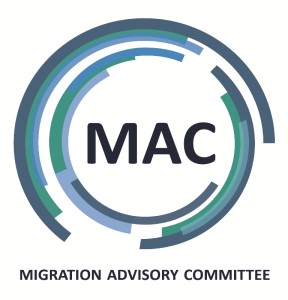Letter to the Home Secretary on the Temporary Shortage List: Stage 1 report (accessible)
Published 9 October 2025
Migration Advisory Committee
2nd Floor Peel Building NE
2 Marsham Street
London
SW1P 4DF
Rt Hon Shabana Mahmood MP
Home Secretary
2 Marsham Street
London
SW1P 4DF
9 October 2025
Dear Home Secretary,
I am pleased to inform you that we have today published the first stage of our review of the Temporary Shortage List (TSL) in response to the previous Home Secretary’s commissioning letter dated 2 July 2025.
We have been asked to conduct a review of the RQF 3-5 occupations to be included on the TSL, in the context of reducing net migration. As per the Immigration White Paper, the TSL will provide a time-limited access to occupations below RQF 6 which are deemed crucial to the delivery of the Industrial Strategy or critical infrastructure.
We are approaching the 12-month review in two stages. In Stage 1, completed today, we have provided recommendations for the design of the TSL as well as a list of occupations which should proceed to Stage 2 for further consideration due to their potential importance for delivery of the Industrial Strategy or critical infrastructure.
We note that the commissioning letter did not provide a definition of critical infrastructure. We interpreted the commission to focus on the occupations (and sectors) involved in building critical infrastructure on the basis of that wording being published by the Home Office alongside the July Immigration Rules changes. This is more focused than considering all 13 Critical National Infrastructure Sectors, which includes sectors such as Food and Health. Our focus on construction does not include operation of services that may be in a broader definition of critical infrastructure. For example, occupations that are required to build a nuclear power station would be in scope, but occupations required to operate a nuclear power station would be out of scope. We will continue to proceed on this basis unless directed otherwise by the Home Office.
On this basis, we used analysis and engagement with government sector experts to identify 82 occupations we plan to progress to Stage 2 of the review. This list of 82 occupations will be subject to further tests to be recommended for inclusion on the TSL at the end of Stage 2: whether the occupations are in shortage and whether they have ambitious Workforce Strategies (now referred to as Jobs Plans) in place, including a skills strategy, a plan to work with the Department for Work and Pensions on a domestic labour strategy, and steps to manage the risk of exploitation, particularly of migrant workers. We would not expect all occupations proceeding to Stage 2 to meet these tests and so expect to recommend a shorter list for inclusion on the TSL at the end of Stage 2.
For Stage 2 to be successful, it will be necessary for the relevant government departments to prioritise work to develop the Jobs Plan. We cannot recommend any occupation for the TSL that does not have such a plan. We would ask that you highlight the importance of this work to your Cabinet colleagues.
Our recommendations on the design of the TSL include:
-
The default duration for an occupation to be added to the TSL should be three years, although the MAC may initially recommend occupations are added for a shorter period if Jobs Plans are lacking in detail but likely subject to rapid improvements.
-
It could be appropriate for visa durations to be between 3-5 years. We do not recommend renewals beyond five years if the government decides that the TSL should not be a route to settlement. We support in-country switching to higher-skilled (RQF 6+) roles within the Skilled Worker route, to encourage progression.
-
We recommend English language requirements no lower than B1.
-
While we refrain from making formal recommendations on settlement rights, sponsorship models, fees, or cap mechanisms, we outline considerations to inform a Home Office decision. The Committee stresses the need for simplicity and flexibility in design, and for the Home Office to continue exploration of alternative sponsorship models, particularly for occupations which are at high risk of abuse or exploitation. The Committee have differing views on whether the reintroduction of a Resident Labour Market Test could support the government’s aims for the TSL. We also keep the option open for nation-specific additions to the TSL but would have a high bar for inclusion due to operational and policy risks.
-
The Immigration White Paper and subsequent Immigration Rules changes have ruled out dependants for TSL occupations, and we therefore do not comment further on this.
Throughout this review we have worked closely with the members of the Labour Market Evidence Group (LMEG), including the Devolved Governments, and the government departments responsible for the eight growth-driving sectors. As we move into Stage 2, we will continue to engage with stakeholders in support of this review, including a Call for Evidence (CfE).
We will provide you with recommendations for occupations to be added to the TSL in July 2026.
On behalf of the Migration Advisory Committee,
Yours sincerely,
Professor Brian Bell, Chair, Migration Advisory Committee
cc:
Mike Tapp MP, Minister for Migration and Citizenship
Alex Norris MP, Minister for Border Security and Asylum
Antonia Romeo, Permanent Secretary
Simon Ridley, Second Permanent Secretary
Daniel Hobbs, Director General Migration and Borders Group

